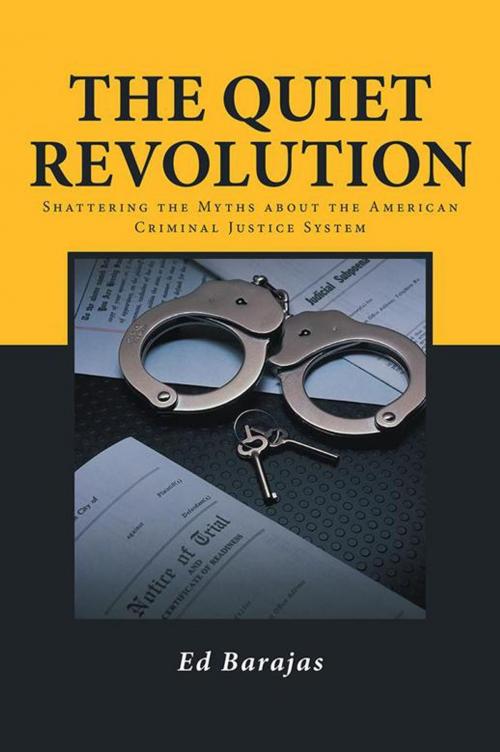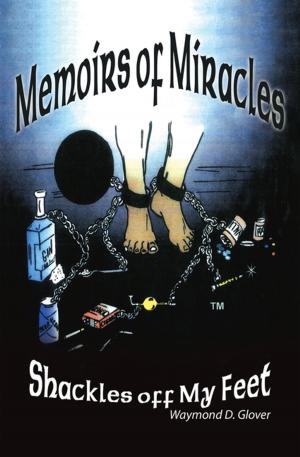The Quiet Revolution
Shattering the Myths About the American Criminal Justice System
Nonfiction, Reference & Language, Law, Criminal law, Social & Cultural Studies, Social Science| Author: | Ed Barajas | ISBN: | 9781491748992 |
| Publisher: | iUniverse | Publication: | November 3, 2014 |
| Imprint: | iUniverse | Language: | English |
| Author: | Ed Barajas |
| ISBN: | 9781491748992 |
| Publisher: | iUniverse |
| Publication: | November 3, 2014 |
| Imprint: | iUniverse |
| Language: | English |
This is a different view of our criminal justice system in a way that challenges the negative portrayals from people considered experts. Contrary to the prevailing view of most experts describing a broken and inhumane system, something appears to be working.
For the past twenty years crime has taken a plunge in the US and the experts appear to be clueless regarding the cause. Barajas suggests the reason for less crime is because of an ongoing transformation of the justice system that is more focused on public safety and working in concert with the community and other service agencies.
Retired from the Federal Bureau of Prisons after twenty-seven years, Barajas challenges the notion that prisons are a necessary evil at best and a shameful institution at worst. More importantly, he suggests practical and lasting solutions to solve the real problems. He also points out that the first step to fixing those problems begins with those who work for the criminal justice system remembering who they servethe taxpayers that pay their salaries.
The book examines how everyday citizens are partnering with the criminal justice system to reduce crime on the local level. Many of these communities are safer and more secure than ever, but theyve largely gone unnoticed. While experts ask the wrong questions and make misguided assumptions, citizens, victims, and criminal justice professionals are transforming the system through a quiet revolution beyond the traditional calls for reform.
Ed offers an insightful and comprehensive policy analysis about the state of the American criminal justice system and provokes thinking beyond traditional policy models. Moreover, he offers solutions that have been proven successful which currently are overlooked or ignored by national policymakers.
Selma Sierra, Policy Director Bingham Research Center, Utah State University
I worked with Ed at the National Institute of Corrections for over a decade. His ability to see through the maze we call corrections was not only edifying but refreshing. He gives a clear picture, as well as solutions, to so many practices that are not working.
Rick Faulkner, President, The Faulkner Group, LLC
This is a different view of our criminal justice system in a way that challenges the negative portrayals from people considered experts. Contrary to the prevailing view of most experts describing a broken and inhumane system, something appears to be working.
For the past twenty years crime has taken a plunge in the US and the experts appear to be clueless regarding the cause. Barajas suggests the reason for less crime is because of an ongoing transformation of the justice system that is more focused on public safety and working in concert with the community and other service agencies.
Retired from the Federal Bureau of Prisons after twenty-seven years, Barajas challenges the notion that prisons are a necessary evil at best and a shameful institution at worst. More importantly, he suggests practical and lasting solutions to solve the real problems. He also points out that the first step to fixing those problems begins with those who work for the criminal justice system remembering who they servethe taxpayers that pay their salaries.
The book examines how everyday citizens are partnering with the criminal justice system to reduce crime on the local level. Many of these communities are safer and more secure than ever, but theyve largely gone unnoticed. While experts ask the wrong questions and make misguided assumptions, citizens, victims, and criminal justice professionals are transforming the system through a quiet revolution beyond the traditional calls for reform.
Ed offers an insightful and comprehensive policy analysis about the state of the American criminal justice system and provokes thinking beyond traditional policy models. Moreover, he offers solutions that have been proven successful which currently are overlooked or ignored by national policymakers.
Selma Sierra, Policy Director Bingham Research Center, Utah State University
I worked with Ed at the National Institute of Corrections for over a decade. His ability to see through the maze we call corrections was not only edifying but refreshing. He gives a clear picture, as well as solutions, to so many practices that are not working.
Rick Faulkner, President, The Faulkner Group, LLC















